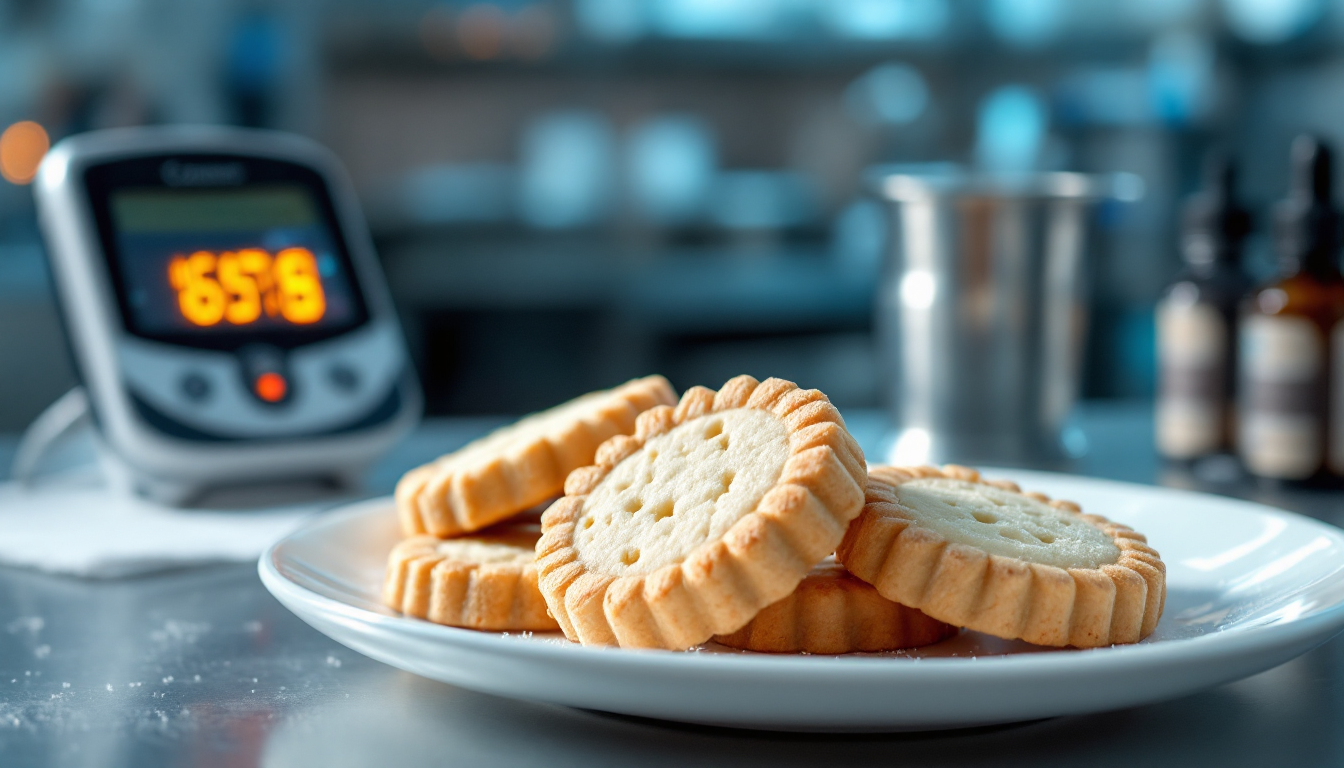Marketed as a healthier cookie option, Gerblé Sugar Free Shortbread represents a common nutritional paradox in today’s food landscape. While the “sugar-free” label may seem appealing, this product harbors several concerning elements that consumers should understand before making it a regular part of their diet.
The Maltitol Trap: Not All Sweeteners Are Created Equal
The primary concern with this product is its heavy reliance on maltitol as the sweetening agent. While technically allowing the “sugar-free” claim, maltitol carries its own set of health concerns:
- Despite being sugar-free, maltitol still impacts blood glucose (glycemic index of approximately 35 compared to sugar’s 100)
- Contains about 75-90% of the calories of regular sugar
- Commonly causes digestive distress including bloating, gas, and diarrhea when consumed in amounts typically found in 2-3 cookies
Dr. Sarah Collins, gastroenterologist at Austin Medical Center, explains:
“Many patients experiencing unexplained digestive issues don’t realize sugar alcohols like maltitol in their ‘diet’ foods are often the culprit. I recommend patients limit consumption to no more than one serving per day, especially if they have irritable bowel syndrome.”
Nutritional Breakdown: Beyond The “Sugar-Free” Claim
Examining the nutritional profile reveals why these cookies remain problematic despite avoiding sugar:
At approximately 433 kcal per 100g, these shortbread cookies are highly calorie-dense. The primary ingredient is refined wheat flour (52-58%), providing minimal nutritional value while delivering a high glycemic load. Despite containing “wheat fiber” as an ingredient, the actual fiber content remains disappointingly low at only 3.7g per 100g.
The fat content (17g per 100g) primarily comes from rapeseed oil, which, while better than saturated alternatives, still contributes significantly to the high calorie count. A typical serving of 4-5 cookies delivers approximately 20-25g of carbohydrates with minimal protein or fiber to slow digestion.
The “Health Halo” Marketing Deception
Gerblé and similar brands employ what nutritionists call the “health halo effect” – using a single positive attribute (“sugar-free”) to imply overall healthfulness. This marketing strategy can lead consumers to overconsume a product still high in calories and refined carbohydrates.
Research published in the Journal of Consumer Research found that people eat up to 35% more when foods are labeled “sugar-free” or “diet,” mistakenly believing calorie consumption doesn’t matter.
Potential Health Impacts You Should Know
Regular consumption of these cookies may contribute to several health concerns:
- Weight gain due to high calorie density and low satiety effect
- Blood sugar fluctuations despite “sugar-free” labeling
- Digestive distress from maltitol, especially when consuming multiple cookies
- Potential gut microbiome disruption from regular consumption of highly processed ingredients
Dr. Michael Rosen, endocrinologist specializing in diabetes management, notes:
“Many of my diabetic patients mistakenly believe ‘sugar-free’ products won’t affect their blood glucose. I’ve seen patients experience significant blood sugar spikes after consuming these products, similar to regular cookies, just slightly delayed.”
The Hidden Impact On Blood Sugar
While marketed as suitable for diabetics and those watching blood sugar, the reality is more complicated. The combination of refined wheat flour and maltitol still significantly impacts blood glucose, just less dramatically than traditional sugar-containing cookies.
A comparative study tracking blood glucose responses found that participants consuming sugar-free shortbread experienced a peak glucose rise of approximately 65% compared to regular shortbread’s 100% – better, but far from “free” impact on blood sugar levels. This partial improvement doesn’t justify regular consumption for those with metabolic concerns.
This mirrors findings from other studies on alternative sweeteners that often don’t deliver the metabolic benefits their marketing implies.
Better Alternatives For Your Cookie Cravings
If you’re looking for healthier cookie options, consider these alternatives:
Truly healthier commercial options:
1. Nairn’s Oat Biscuits – Made from whole grain oats with substantially more fiber and fewer processed ingredients
2. Simple Mills Almond Flour Cookies – Higher protein and fiber from nut flour base, sweetened with coconut sugar (lower glycemic impact)
3. Homemade almond flour cookies using minimal natural sweeteners like monk fruit or stevia
For a truly healthy approach, consider replacing regular cookie consumption with nutrient-dense alternatives like fresh fruit with a small piece of dark chocolate or a handful of nuts.
Making Informed Choices For Your Health
Gerblé Sugar Free Shortbread cookies represent the widespread issue with many “diet” foods – addressing one concern (sugar) while maintaining other problematic elements (refined carbohydrates, high calorie density, highly processed ingredients).
While occasional consumption isn’t harmful for most people, regular inclusion in your diet based on perceived health benefits is misguided. Like many ultra-processed foods marketed as healthier alternatives, the minor improvements don’t outweigh the fundamental nutritional limitations.
As with all dietary choices, context matters. If you enjoy these cookies occasionally while maintaining a diet centered around whole, nutrient-dense foods, the impact will be minimal. However, if you’re consuming them regularly believing they support weight management or metabolic health goals, you may want to reconsider your approach to truly optimize your health through better food choices.
